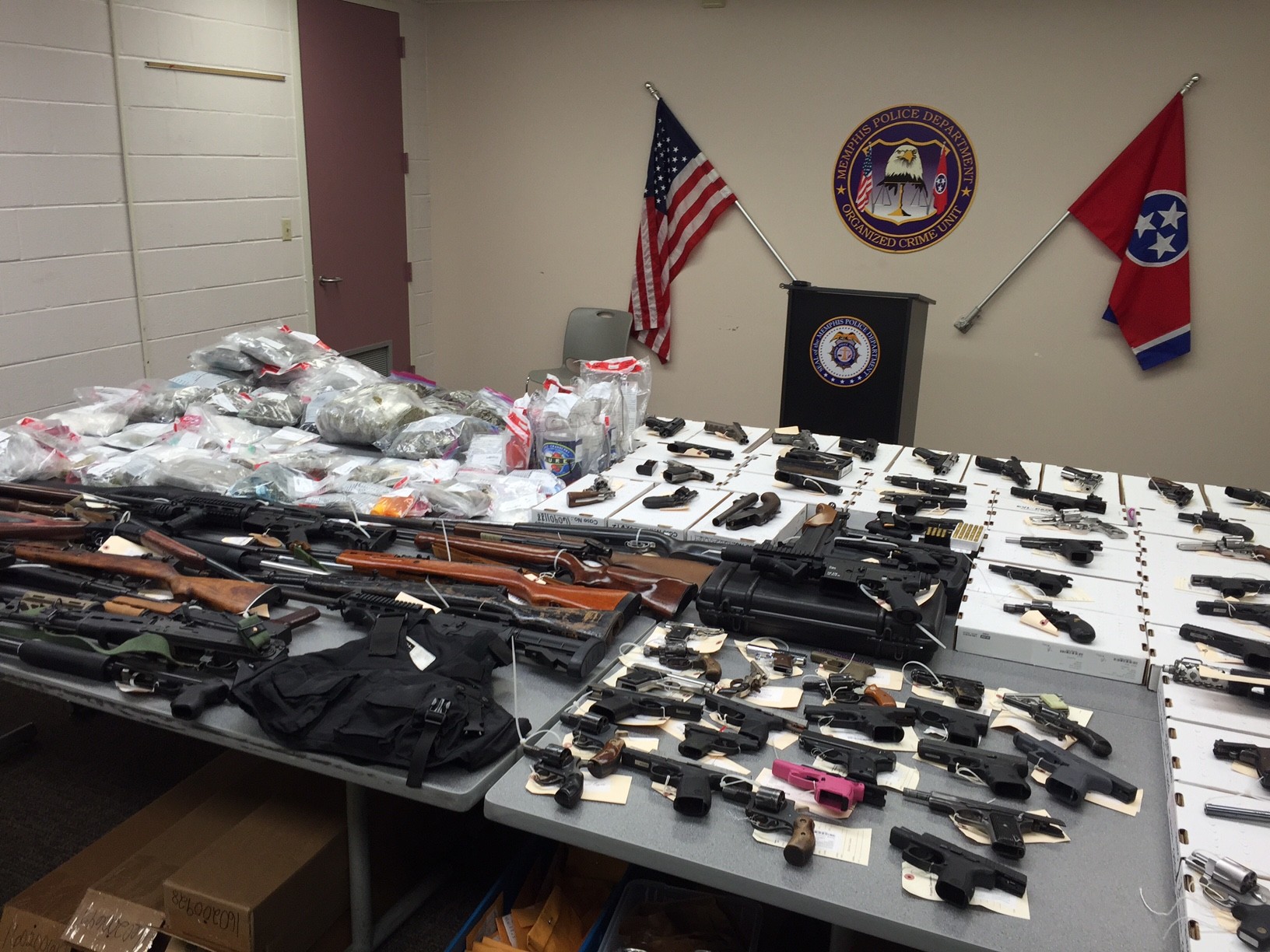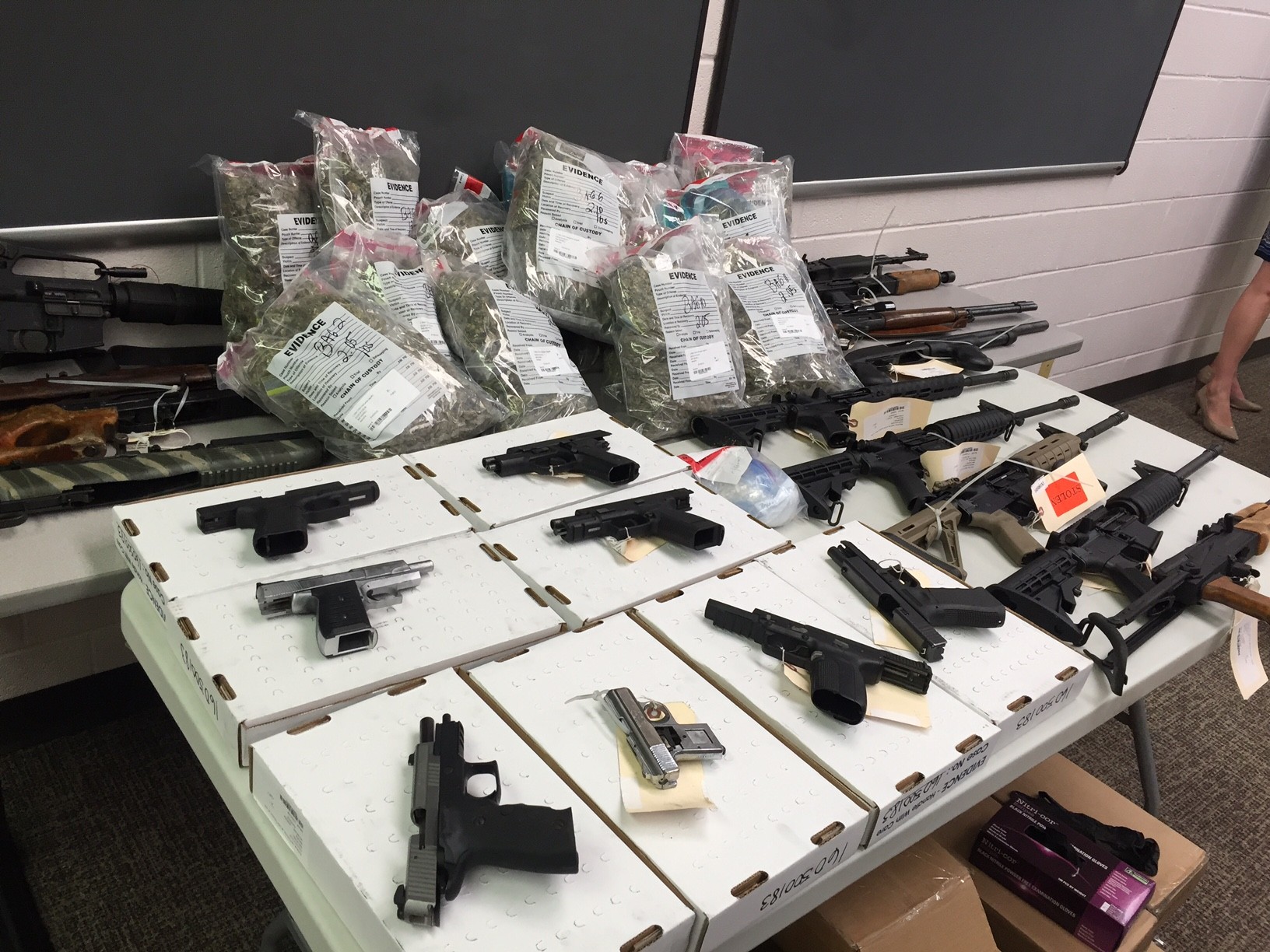Memphis Police Director Michael Rallings held a press briefing on Thursday afternoon at the department’s Organized Crime Unit (OCU) to show off guns and drugs confiscated in various busts since February, and the director also took a few minutes to discuss the city’s unusually high homicide rate.
Rallings said there have been 78 homicides to date, and 55 of those murders have been solved. The MPD has arrested 42 people in connection with this year’s homicides, and three warrants have been issued for suspects at large. Four of the homicides were ruled justifiable.
In 34 cases, the suspects and victims knew one another, and only 11 homicides this year have been proven to be gang-related. Fourteen of the murders were domestic violence-related, and 17 of them involved juveniles (including four unborn children).
Firearms were overwhelmingly the weapon of choice for suspects this year — 64 of the 78 homicides were committed with guns.
“As I have mentioned before, it is almost impossible to predict when a homicide will occur. There is no statistical data that will alert us of when someone has made the decision to commit murder. The Memphis Police Department cannot combat this problem alone,” Rallings said.

On two tables in an OCU briefing room were 130 guns, 223 pounds of pot, 1,118 grams of crack and powdered cocaine, and an assortment of heroin, meth, and pills. Of those guns, 110 were handguns and 20 were long guns. The guns and drugs were collected through undercover investigations and traffic stops conducted between February 1st and April 15th of this year. Those investigations and traffic stops led to 394 felony arrests, 61 weapons charges, 424 misdemeanor arrests, and 808 misdemeanor citations.
The largest bust was associated with three related houses on South Wellington, Newell, and North Holmes. That search warrant netted $13,000 in cash, 33 pounds of pot, 405 Xanax pills, and 22 firearms. Ten of the weapons seized in that operation were stolen from citizens and six were stolen from Richard’s Armory in Bartlett.
Rallings said the total stash seized since February was “one of the largest collections … I have witnessed.”
“With a large reduction in staff, these men and women are still hitting it hard. They’re doing a bang-up job,” Rallings said. “We’re doing everything we can to rid the city of guns, gangs, criminals, and drugs.”

The guns and drugs on this table were associated with one investigation that involved three homes.
